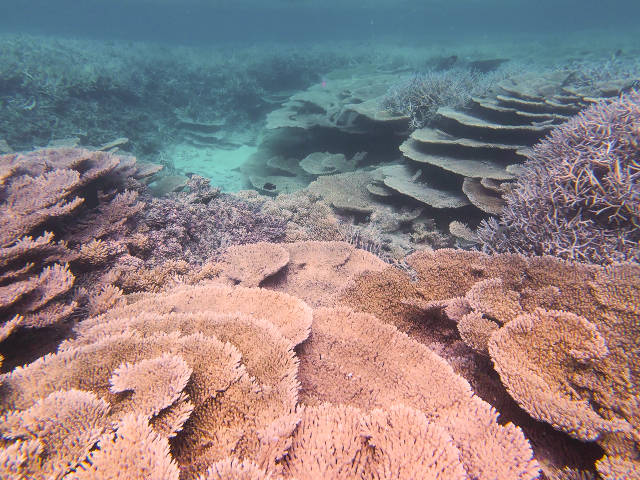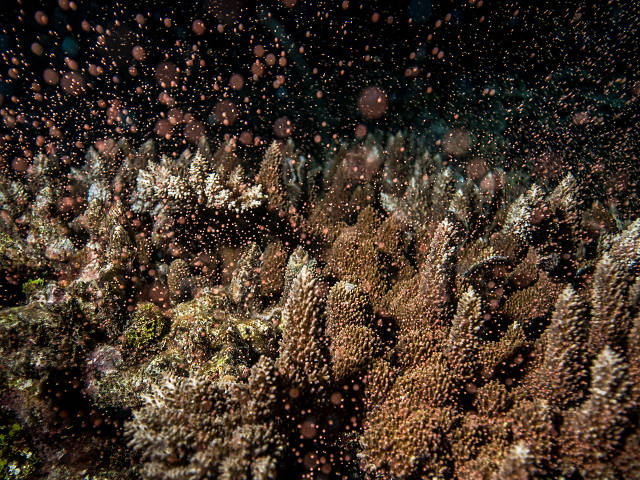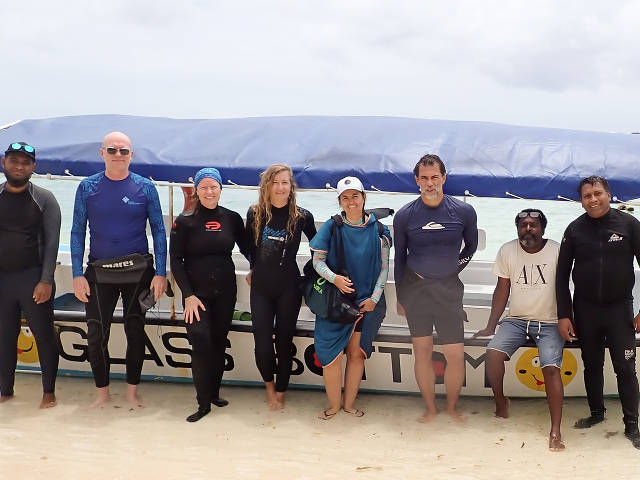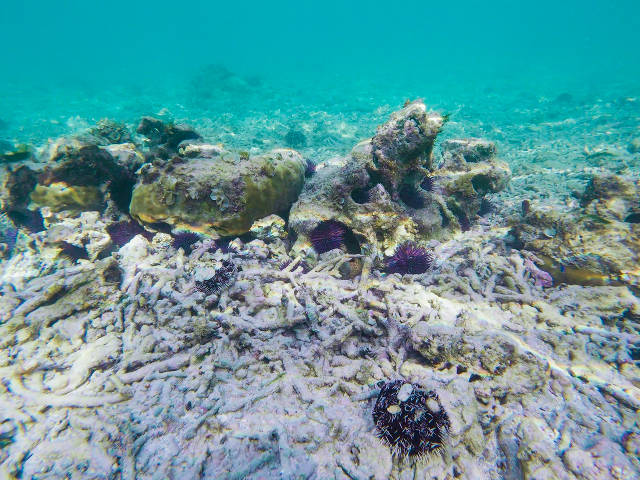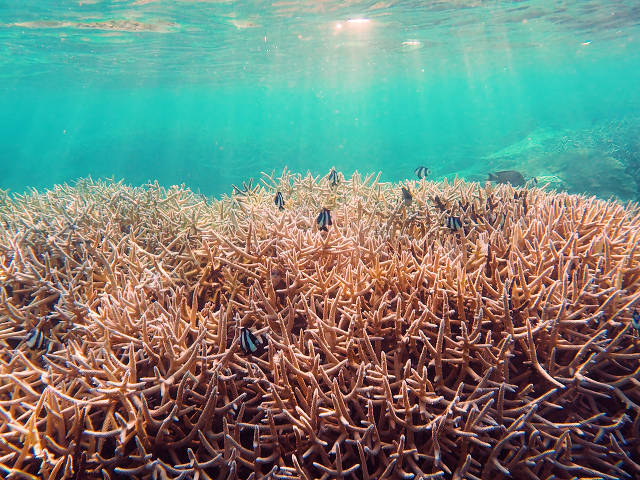The initiative was launched with a workshop among the collaborating partners and an open seminar bringing together local stakeholders and authorities, to provide a platform for a comprehensive and mutually beneficial cooperation for all parties in the future.
Coral reefs are not doing well, in fact, devastating events keep piling up and global coral bleaching is decimating coral populations at an alarming rate. In addition, local stressors, diseases, and the destruction of habitats are negatively impacting these valuable ecosystems. With the increasing effects of climate change, especially rising sea water temperatures, active measures are needed to ensure the survival of coral reefs beyond this century.
Over the past six years SECORE and partners have successfully established an implementation network for Coral Seeding in the Caribbean, which continues to expand across the Caribbean basin and currently includes partners from 11 nations.
This new initiative now aims at translating this model into the Indian Ocean, with Mauritius playing an essential role as the first and primary location from which this initiative will spread to other countries in this region. Our experience has shown that strong partners actively involved in local efforts and policymaking are essential for such an initiative to be successful.
The new SECORE team will be based at Odysseo. Two team members are already on board and two more will be added in the next few months, whereby priority is given to experts from Mauritius. The public aquarium is also an indispensable partner for education and outreach - reaching thousands of visitors every year, including many children from local schools.
“We are extremely excited to have a team at Odysseo that will use the techniques developed by SECORE International for Coral Restoration, “says Bernardo Nascimento, Odysseo Foundation Manager & Odysseo’s Curator and Head of Education. “I really believe that together with SECORE and our local partners, Eco Sud and University of Mauritius, we will take coral restoration efforts in this region to another level”.
The marine conservation organization Eco Sud, which works to protect the Mauritian reefs, brings local expertise, as well as existing logistic and general support. In addition, Prof. Ranjeet Bhagooli's team at the University of Mauritius is part of this important initiative, contributing to the scientific foundation on which it is to be built.
The reefs of Mauritius, like the reefs everywhere else, are challenged by human impact. While in some places the coral populations are declining and reefs are degraded, there are still reefs in Mauritius that are in good condition. These are ideal settings for breeding corals, i.e. sufficient natural broodstock whose reproduction potential will be amplified by the restoration work. Mauritius is also known for its “coral slicks”, the accumulation of coral gametes that drift ashore and form pink ribbons in the water. These slicks contain rapidly degrading reproductive material and, if discovered early enough, can also be used to breed new coral offspring.
In general, it is important to start active restoration measures early before the degradation of the reefs takes too high a toll. Once coral populations fall to low levels, it becomes increasingly difficult to ensure their recovery.
Applying Coral Seeding requires knowledge on the exact times when corals spawn – annually it’s only a few nights per species. Once the timing of more coral species is determined, a reliable spawning calendar can be created. This is part of the work that the partners are doing at the very start of this initiative. Coral reef scientist Dr. Gaëlle Quere and Restoration Technician Annais Lamb (SECORE) as well as a dive team around Eco Sud and the University of Mauritius conducted the first coral spawning observations last week.
“It's the first time this restoration approach will be established in our region and as a Mauritian I am proud to be part of it,” says Annais Lamb. “Witnessing coral spawning for the first time was an incredible and impressive experience and I look forward to the work ahead. “
Taking advantage of the natural reproduction potential of corals, Coral Seeding promotes genetic diversity – each new coral baby is genetically unique – and therefore maintains the corals’ adaptation potential, enabling them to adapt to changing environmental conditions. This approach also offers the opportunity to collect millions of coral eggs per spawning night and obtain many new offspring.
The overall goal of this initiative is to establish Coral Seeding in the Indian Ocean, positioning Mauritius as a base for capacity building and implementation across the region. The first candidates for a future and far-reaching implementation network have been identified, specifically partners in Madagascar, the Commons Islands, Tanzania, and Kenya.
To get a comprehensive overview of the coral spawning pattern in the Indian Ocean and to involve the new, enthusiastic partners at an early stage, SECORE's Research Director, Dr. Margaret Miller, has established a spawning monitoring group among these nations. As a result, not only teams in Mauritius have started spawning surveys in the recent weeks, but several teams in the Western Indian Ocean region have been regularly out diving to monitor for signs of coral spawning.
Dr. Dirk Petersen, SECORE’s Founder and Executive Director is confident: “I am excited about this new initiative that will help reef managers on Mauritius and in the region to utilize Coral Seeding for more resilience of their coral reefs against climate change. The Mauritian government, local businesses, the university and nonprofits form a strong basis to make Mauritius a center to build important capacity for the Indian Ocean region. This is an excellent starting point for success.”
Hopefully soon, the first corals will be bred to support the recovery of Mauritian reefs!
Further info
Press release: Propagated corals reveal increased resistance to bleaching across the Caribbean during the fatal heatwave of 2023, Eureka Alert! Sept 2024
Peer reviewed study: Assisted sexual coral recruits show high thermal tolerance to the 2023 Caribbean mass bleaching event. Margaret W. Miller, Sandra Mendoza Quiroz, Liam Lachs, Anastazia T. Banaszak, Valérie F. Chamberland, James R. Guest, Alexandra N. Gutting, Kelly R. W. Latijnhouwers, Rita I. Sellares-Blasco, Francesca Virdis, Maria F. Villalpando, Dirk Petersen. PLOSONE, 2024.
Peer reviewed study: Rebuilding Coral Reefs: A Decadal Grand Challenge. Knowlton N, Grottoli A, Kleypas J, Obura D, Corcoran E, de Goeij J, Felis T, Harding S, Mayfield A, Miller M, Osuka K, Peixoto R, Randall CJ, Voolstra CR, Wells S, Wild C, Ferse S.. International Coral Reef Society and Future Earth Coasts, 2021.







